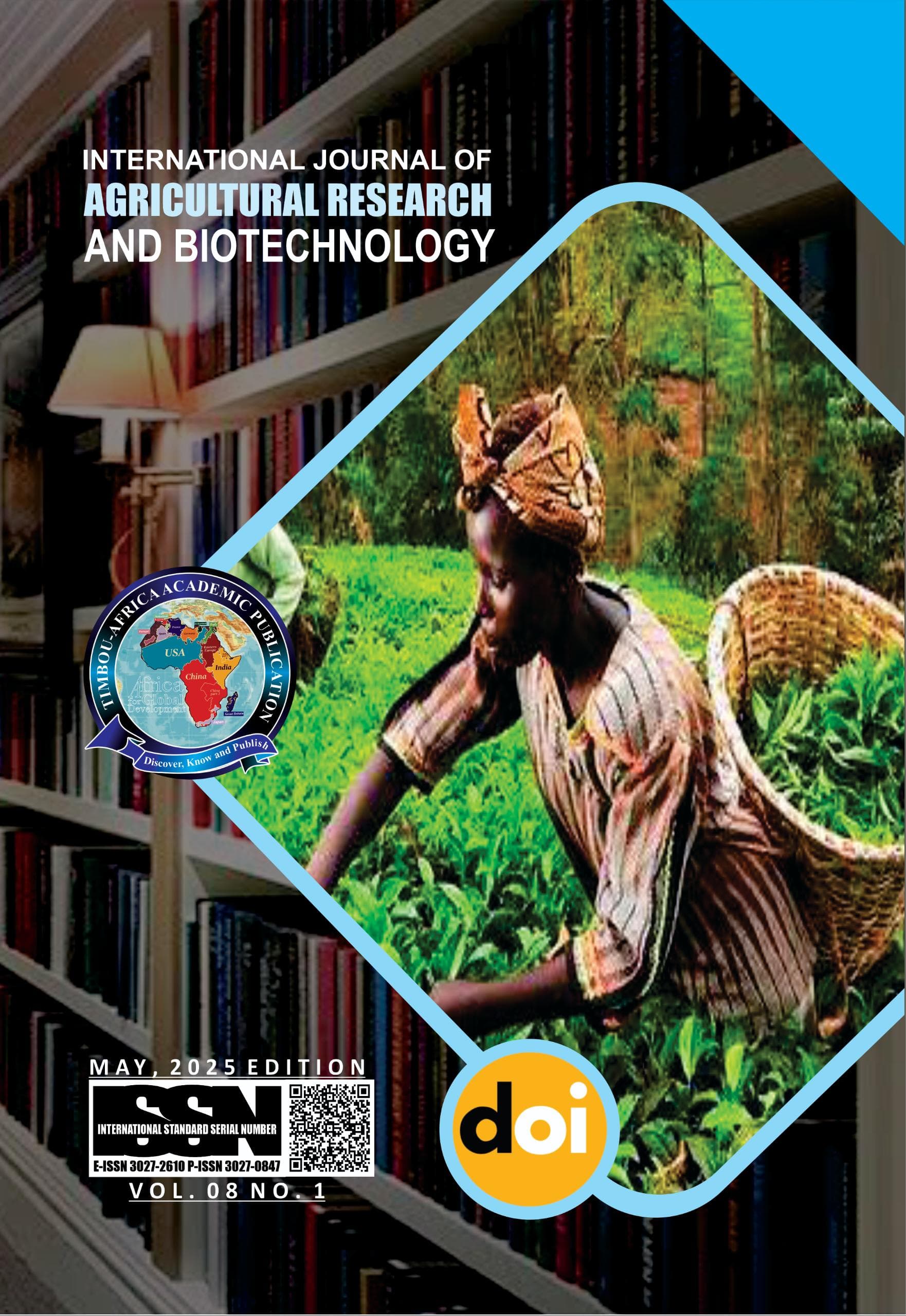APPRAISING THE PREFERENCES OF ASPIRING AGRICULTURISTS FOR LAND-CLEARING AND SOIL-AMENDMENT TECHNOLOGIES

Abstract
Land-clearing and soil-amendment strategies play a crucial role in determining agricultural productivity, sustainability, and environmental resilience. This study appraised the preferences of aspiring agriculturists for ten land-clearing and soil-amendment technologies using a preference ranking system and two-way analysis of variance (ANOVA). Data were collected from final-year agronomy students at Southern Delta University, Ozoro, who had completed the Farm Practical Year Programme (FYP). Statistical analyses were performed using the Statistical Analysis System (SAS Institute, 2002). Results indicated a strong preference for organic-based amendments (e.g., cattle dung, sugarcane peelings) and conservation-oriented land-clearing techniques (e.g., slash-and-mulch), whereas conventional practices such as ploughing and slash-and-burn were least preferred. The opinions of aspiring agriculturists are particularly critical because university exposure shapes their technical competence, environmental awareness, and innovative capacity. As the next generation of farm managers, extension agents, and policy influencers, their preferences can serve as predictors of future technology adoption trends and sustainability-oriented practices. Ethical approval for this study was obtained from the Institutional Review Board of Southern Delta University, Ozoro. The study was limited by its small sample size and single-institution scope, which may affect the generalizability of the findings. Future research should include larger, multi-institutional samples and comparative analyses across regions, genders, and socio-economic backgrounds to provide broader insights into the determinants of technology preference and adoption among emerging agricultural professionals.
Keywords
Aspiring Agriculturists, Sustainable Agriculture, Land-Clearing Technologies, Soil Amendment, Agricultural Innovation, University Exposure, Climate-Smart Farming